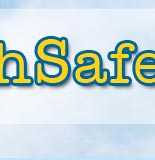 |
 |
 |
 |
 |
 |
|||||||||
Join our mailing list and receive updates about our activities. |
|
Cyberbullying: You Have the Power to Stop It
By Dr. Kim Storey February 27, 2013  Bullying prevention expert Kim Storey, EdD, tells us what cyberbullying is and how it can be prevented. Bullying prevention expert Kim Storey, EdD, tells us what cyberbullying is and how it can be prevented.
You would be hard-pressed to find teenagers today who do not broadcast their social activities and relationships all over Facebook, Twitter, and other social networks. Although these networks help teenagers maintain and broaden their relationships, they can also invite hurtful behavior. How worried should we be? What can we do? In today's world, online bullying is very much entangled with bullying offline. A 2011 Pew Research Center national survey of youth confirms that teenagers' online bullying can lead to face-to-face confrontations, the ending of friendships, fear of going to school, physical fights, problems with parents, and trouble in school. When young people post hurtful comments or send malicious text or images via the Internet, cellphones, or other digital devices, we may refer to this behavior as "online cruelty" or "bad digital citizenship" - or even dismiss it as "kids being kids." But online harassment becomes cyberbullying when it's intentional, repeated, and an abuse of power - the three defining characteristics of bullying. What makes cyberbullying different from other bullying? Cyberbullying is invasive and pervasive. It has the potential to spread quickly to the entire school community and beyond, and it takes on a life of its own long after the school day ends. Screen names and other virtual identities give kids a sense of anonymity, making them less inhibited in their online cruelty and less mindful of the consequences of their actions. As one high school principal explains, "Students say horrible things to each other on Facebook that they would never, ever say in person. And then students come to school upset and embarrassed. It doesn't matter where it originated, it's disrupting their ability to learn." The effects of cyberbullying can be devastating. Students who are cyberbullied may report feeling depressed, sad, angry, or frustrated. Ryan Halligan's suicide in 2003 was one of the first widely publicized instances where the combination of online bullying, bullying at school, and deep depression resulted in suicide. Tragedies like this need to be stopped. What can we do to prevent cyberbullying? We've learned that especially in cyberbullying, the bystander is key. When teens need help with online cruelty, they turn to their friends or peers—online and off. Surprisingly, Pew's national survey found that 80 percent of teens have defended victims of cyberbullying, and that 20 percent do so regularly. As parents and educators, what can we do to encourage all students to play an active role in cyber-bullying prevention? How can we encourage them to stop online bullying whenever they encounter it? Here are some strategies you might try:
Credits: kimstorey.net |

This web site has been produced by The Melissa Institute for Violence Prevention and Treatment to provide research-based school violence prevention procedures for educators. The web site has been made possible with the generous support of the Robert and Renee Belfer Foundation and other supporters. |
 |
The Melissa Institute for Violence Prevention and Treatment to provide research-based school violence prevention procedures for educators Terms and Conditions |
|